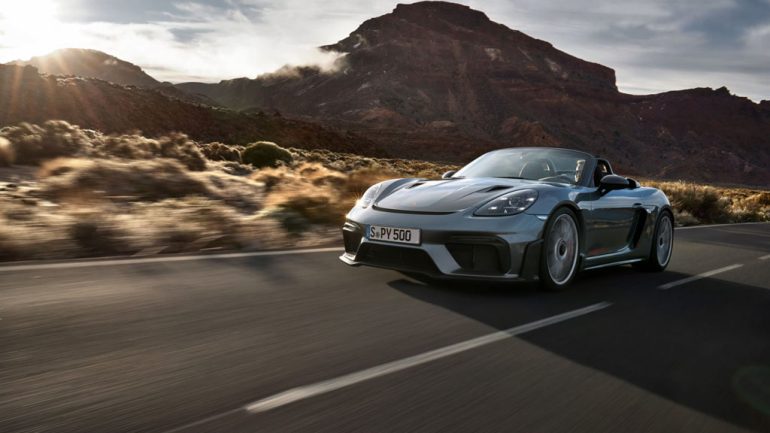Automotive

If it feels like owning a Porsche is getting more expensive, that’s because it is. The automaker has officially raised prices across its entire model lineup, pointing to what it describes as “market conditions” for the uptick. While Porsche has always commanded a premium, this latest round of increases comes amid a swirl of challenges facing the brand both globally and here in the U.S.
Originally reported by Road & Track, the price changes affect every model in the lineup, with MSRPs rising between 2.3% and 3.6% depending on the vehicle. Porsche acknowledged the shift in a statement, saying it continually monitors the market and only makes pricing changes when “absolutely necessary.” While that may sound reassuring, the reality is this increase affects both base prices and optional extras — which means a fully loaded build could end up costing thousands more than it did just a few months ago.

To put the numbers into perspective, the 2025 Porsche 718 Cayman now starts at $77,395, up from $74,795. The iconic 911 Carrera will set buyers back $134,650, while the 2026 Cayenne jumps to $91,950. The Macan climbs to $66,950, and the Panamera is now priced at $112,450. Even the Taycan, Porsche’s flagship EV, saw its MSRP rise to $106,250. These are not minor adjustments, especially when you factor in the fact that Porsche’s options list is notoriously expensive — and those have also seen price hikes.
While Porsche hasn’t directly pointed fingers at tariffs, the situation certainly looms in the background. Porsche builds all of its cars in Europe — mostly in Germany, with the Cayenne assembled in Slovakia and a small number of cars produced in Malaysia for that local market. This leaves the brand particularly vulnerable to changes in trade policy. The Trump administration had already imposed a 25% tariff on imported cars and parts, and with a fresh threat of a 30% tariff on all EU goods, the pressure on European automakers is mounting.

This is one of several reasons Porsche has been exploring the idea of U.S. production. Building vehicles stateside could help buffer against future trade penalties and bring the brand closer to one of its most loyal customer bases. U.S. sales have held relatively strong, but even here, the landscape is changing quickly. Electric vehicles, like the Taycan and upcoming Macan Electric, have not seen the widespread adoption Porsche expected. At the same time, demand for internal combustion models remains high, yet increasingly difficult to navigate due to regulatory and economic headwinds.
Globally, the picture is even more complex. Sales in China have dropped significantly, as domestic automakers continue to dominate and buyers shift away from foreign brands. With EV competition heating up at home and abroad, and tariffs threatening to cut into already razor-thin margins, Porsche finds itself at a crossroads.

For buyers of high-end models like the 911 or Panamera, a 3.6% increase may not raise eyebrows. But for more accessible, higher-volume models like the Cayenne and Macan, the added cost could make a noticeable difference. These vehicles appeal to a broader audience and often compete with luxury crossovers from brands that already manufacture in North America, giving them a price advantage.
What’s clear is that Porsche is entering a new era — one where profitability won’t come as effortlessly as it has in the past. For years, the brand has been a case study in how to balance performance, luxury, and branding, often leading the industry in both sales margins and customer loyalty. That reputation is still intact, but the road ahead looks more uncertain than it has in years.
Whether this price hike is a one-time correction or a sign of more increases to come, one thing is certain: in today’s automotive market, even Porsche isn’t immune to the shifting tides.
FOLLOW US TODAY:

Darryl Taylor Dowe is a seasoned automotive professional with a proven track record of leading successful ventures and providing strategic consultation across the automotive industry. With years of hands-on experience in both business operations and market development, Darryl has played a key role in helping automotive brands grow and adapt in a rapidly evolving landscape. His insight and leadership have earned him recognition as a trusted expert, and his contributions to Automotive Addicts reflect his deep knowledge and passion for the business side of the car world.


